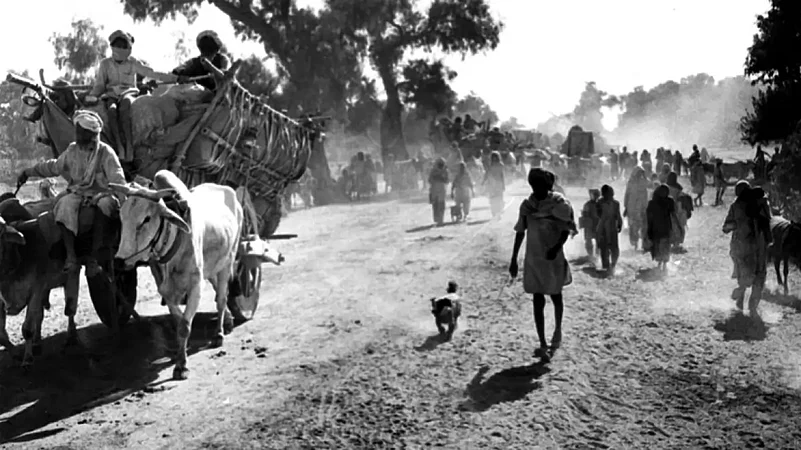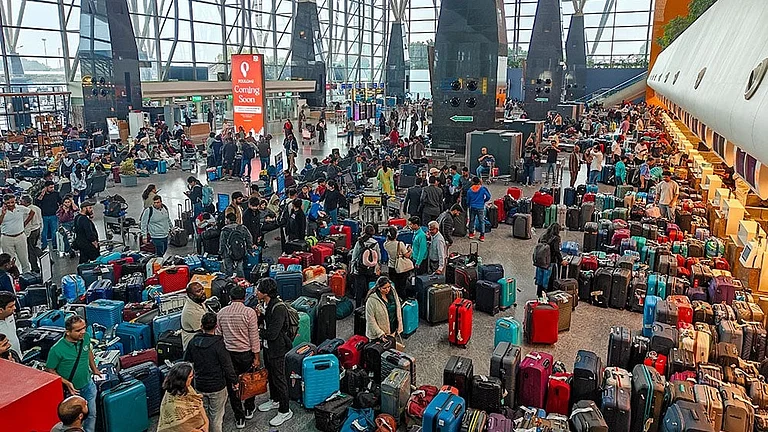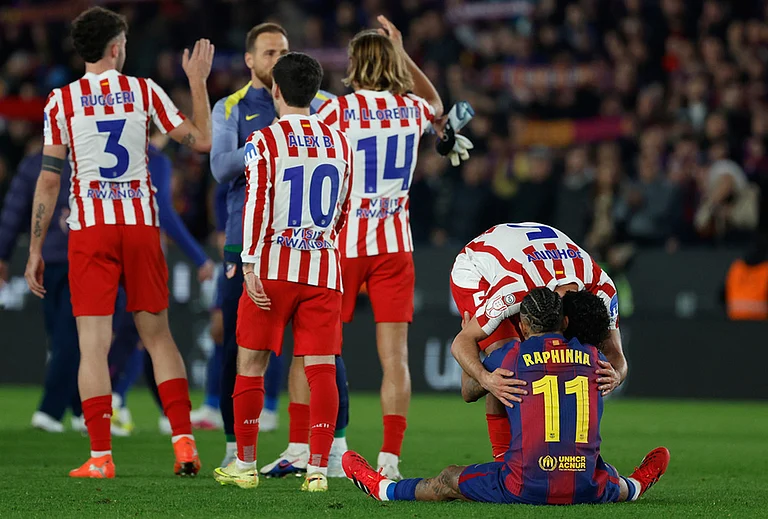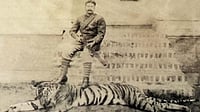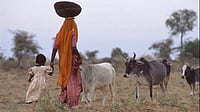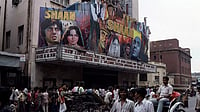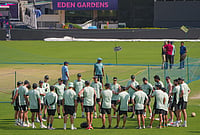Sim Sim
Geet Chaturvedi, translated by Anita Gopalan
Penguin India
Rs 499
Geet Chaturvedi’s is a story of the different levels of loss. The loss of a homeland, the loss of a love, or even a book’s lost cover. The book was originally a long poem which then became a novel and shards of poetry linger from the original text while the book’s philosophies of completeness and incompleteness were taken from the Upanishads.
Though the original flowed from literary Hindi to everyday dialogue, the translator has chosen to use modern Indian English with its attendant slang to keep relevance for readers.
The story weaves itself around two main characters, an Old Man and ‘I’. I is young a product of today’s generation, internet savvy but Hindi-speaking and determined to make it in life, despite his Pau’s old fashioned nations. The Old Man, Basar Mal, is haunted by the scent of guavas and the memory of a girl called Jaam whom he left behind in Larkana when Partition tore Hindustan in two. He is Sindhi, a lost space where Hindus and Muslims once lived together in harmony until violently separated and is now a migrant in Mumbai, the owner of a library that no one has visited for 11 years until I steps in drawn by a vision in a yellow window across the garden. In between these two is Dil Khush Sambose wallah’s quirky shop famous for its cream and chai.
All of them are wanderers though ‘I’ the emotional youngster hasn’t lost anything in particular but is looking for a future which relies on a knowledge of English — until he glimpses the girl who seems almost to be his companion.
Mangan’s Ma was found by Basar Mal, someone he knew from the long ago, now widowed by Partition and whose life he stepped into with the hope of a child. Jalo, Mangan’s Ma, has lapsed into silence due to some unexplained sorrow that Chaturvedi trails through the chapters, along with the scent of guavas and the missing girls. The stories counterpoint each other with a sudden excursion into magical realism brought in by the cover separated from its book. Though the stray cover is like Basar Mal and Mangan’s mother separated from its moorings and Basar Mal can’t find the glue that will unite book to cover and love to life.
Chaturvedi’s poetry is conveyed through the lyricism of the language, translated as it is and by incidents like a boy and girl on a stolen afternoon in a ruined madrassa. Past and present are linked by love and the undercurrents of violence. Sambosewallah needs more land for his shop but Basar Mal is unwilling to give up his library despite the 11 years of non-visitation and the tattered books — this despite threatening calls. I’s appearance on the scene only strengthens his resolve, though I spends more time sipping coffee and staring out of the window hoping to catch a glimpse of the elusive girl he spotted behind the curtains.
The real heart of the library isn’t the books but Basar Mal’s files which hold the story of Larkana and the missing girl as well land papers though he rarely delves deep into them since the content sticks in his throat. After setting the context of different romances, different books and people, the story sweeps into Basar Mal’s adventure as an 18-year-old disguised as a Muslim stick fighter, which is a tale of romance, violence, and despair. It also brings out the differences between Hindus and Muslims which were less stark before Partition brought them into focus.
The title Sim Sim refers to the opening up of hearts and minds — Mangan’s mother for example seems to have lost the magical formula to open up her world or so Basar Mal thinks. I has opened up a new career but discovers that the stories he has clung to are probably false.
Land wars erupt on a small level, mirroring the larger crisis that occurred during Partition. Who belongs and who does not and why should force decide who has the greater right? The question is never answered. Dil Khush’s owner disappears and his shop becomes an upmarket global vada pao joint on a McDonald model. The Sindhi Library is swallowed up and Basar Mal too vanishes from the script.
Ultimately, the book cover has the last word on stories and book burnings which have existed through history in most parts of the world, including recently during the Arab Spring. The question is, were the stories true, did they exist, did they migrate through time like the people who told them or were they just a poet’s dream? Khul ja sim sim!


